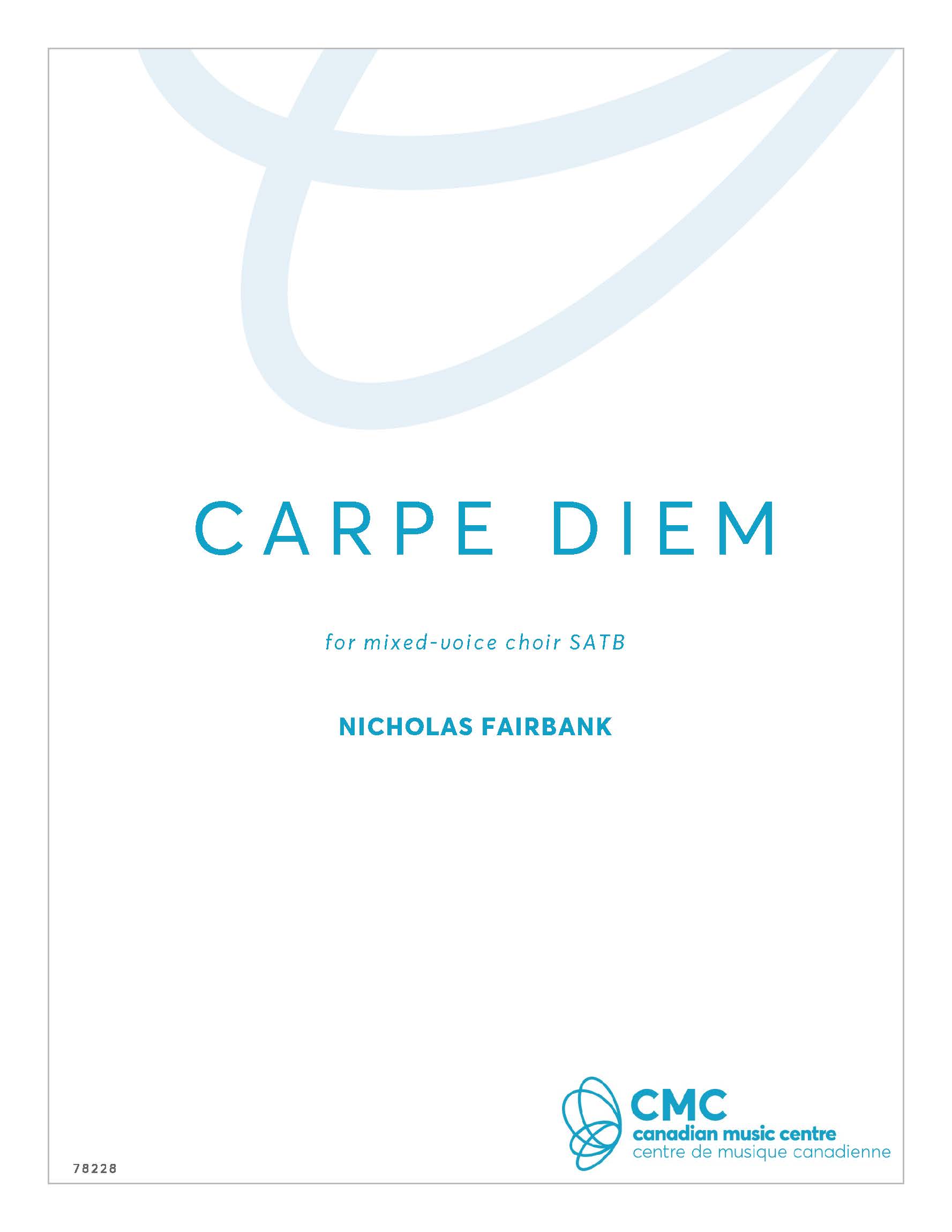The Latin title of this song means “seize the day” and comes from the Odes (23 BCE) by the Roman poet Quintus Horatius Flaccus, better known as Horace. It implies enjoyment of pleasures of the moment without care for the future. The philosophy of carpe diem has been expressed in writings all through the ages, and in the 21st century continues in the aphorism YOLO (you only live once). In the French Renaissance the carpe diem sentiment was used by the Pléiade poets, and in English literature the concept was especially popular in the 16th and 17th centuries with writers such as Robert Herrick and Andrew Marvell. More recently Robert Frost expressed the idea in his poem “Carpe Diem.” For this choral work, intended particularly for youth choirs, I have used carpe diem texts by five different writers, from ancient Rome to the 19th century. Writing with a youth choir in mind, my intention has been to create a piece in which the enthusiasm of youth can be transmitted through the musical performance.

